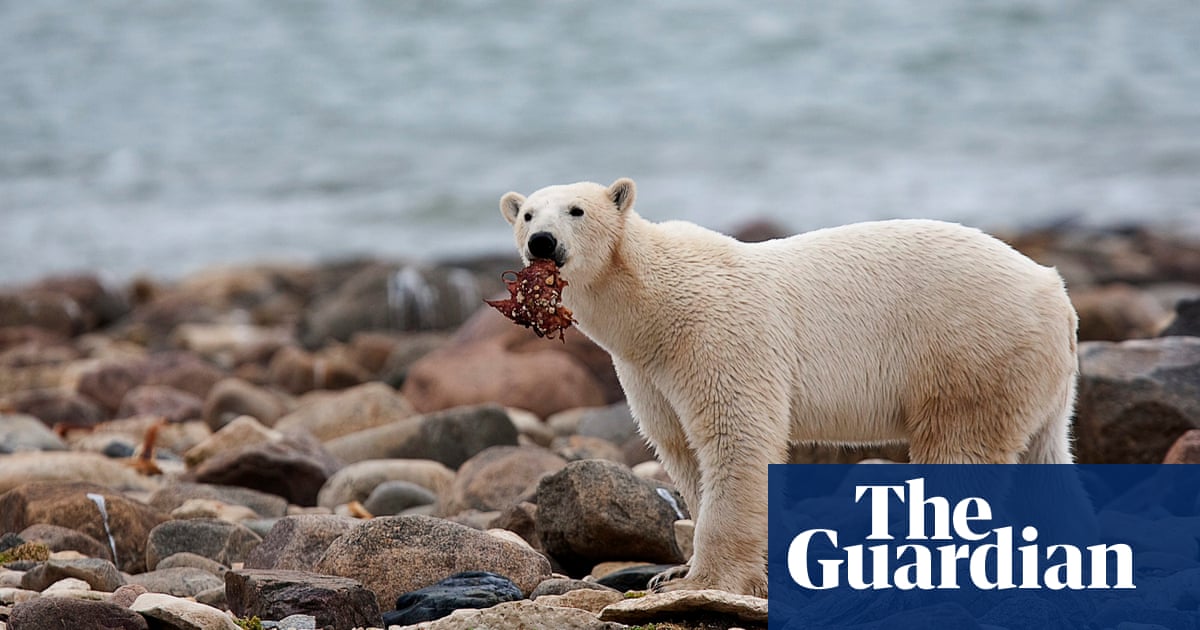
Polar bears in the Hudson Bay region of Canada face the threat of starvation due to the increasing length of time without Arctic Sea ice caused by the climate crisis. This is despite the fact that these animals are open to diversifying their diets.
During the colder months, polar bears rely on the frozen surface of the Arctic ocean to reach their primary food source, which is made up of high-fat ringed and bearded seals.
During the summer months when the sea ice retreats, it is likely that they will conserve their energy and possibly go into a state similar to hibernation.
However, human-induced climate change is prolonging the time without ice in certain areas of the Arctic. This region is warming at a rate of two to four times faster than the global average, causing polar bears to increasingly rely on land for survival.
A recent study on 20 polar bears in Hudson Bay indicates that even without sea ice, they will attempt to seek out food.
According to Anthony Pagano, a research wildlife biologist, polar bears are resourceful and clever creatures. They will explore their surroundings in order to find ways to survive and obtain food, especially when they are driven by motivation.
A study published in Nature Communications utilized GPS collars with video cameras to monitor polar bears for three-week intervals over a span of three years in western Hudson Bay. It was discovered that the ice-free season in this area increased by three weeks between 1979 and 2015, resulting in the bears spending around 130 days on land during the last decade.
The study showed that two bears in the group rested and decreased their overall energy expenditure to match that of hibernation, while the remaining 18 bears remained active.
The research indicated that these energetic bears may have been compelled to persist in their search for nourishment, as evidenced by documented instances of individual animals consuming a diverse array of sustenance such as grasses, berries, a gull, a rodent, and a seal carcass.
Three bears went on lengthy swims, with one covering a distance of 175km (equivalent to over 100 miles). Other bears were observed engaging in activities such as playing together or chewing on caribou antlers, similar to how dogs would chew on bones, according to researchers.
However, the researchers ultimately discovered that the bears’ attempts to obtain food on land were insufficient in providing them with the necessary calories to match their usual marine mammal prey.
Researchers stated that 19 out of the 20 polar bears observed experienced weight loss that aligned with what is typically expected during a fasting period.
This indicates that the more time polar bears spend on land, the greater their chances of starving become.
Melanie Lancaster, a senior specialist for Arctic species at the World Wildlife Fund, not affiliated with the study, stated that these results further reinforce the current research and serve as additional evidence that raises concerns. She made these remarks in an interview with AFP.
The climate crisis is the main threat to the 25,000 remaining polar bears in the wild.
According to Pagano, restricting greenhouse gas emissions that contribute to global warming and staying within the 1.5C goal set by the Paris agreement could help maintain the size of polar bear populations.
However, the overall temperature of the Earth, which currently stands at 1.2 degrees Celsius, is still increasing and the amount of sea ice is decreasing.
John Whiteman, the lead researcher at Polar Bears International, who was not a part of the study, stated that the research is significant as it directly assesses the amount of energy polar bears use during periods when there is no ice.
According to the speaker, the fate of polar bears is directly tied to the loss of ice, and the only way to address this issue is by stopping the ice from melting. This is the sole solution.
Source: theguardian.com


















